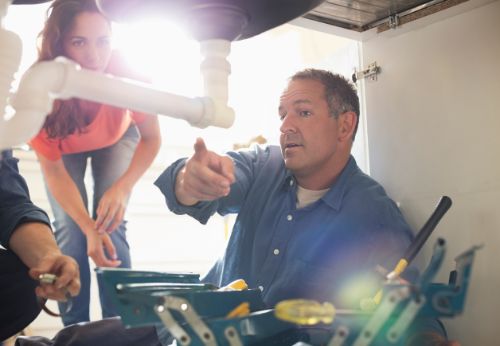Getting to Know Your Home Water Supply

Your plumbing system is designed to be so effective and efficient that you do not need to think about it most of the time. However, here are a few facts you need on hand about the way your home uses water, and what you can do to protect your access.
How Does Water Get to My Home?
For your purposes, there are two plumbing systems you need to know about. The plumbing for your home connects all your faucets, toilets and water-using appliances to the water supply on your street. That water comes from a local supply source, often a water tower, which comes from the plumbing system in your area. The system uses gravity and pipes to deliver the water down your street and into your home. Your plumbing system has a valve that allows the water to be turned on or off, providing fresh water to your household.
How Does Waste Water Leave My Home?
You flush the toilet, and unless you have a septic system, you may not think much about it otherwise. In most cases, your home is connected to a sewer system that eliminates waste from your home and keeps your city much cleaner. Septic systems filter out and eliminate waste water on the property. The sewer system draws waste water from your plumbing to the sewer line, where the water is delivered to a water treatment plant. Solid waste is removed, and the remaining water is treated for microorganisms and other contaminants.
Can I Shut Off My Water Supply?
Although the administrators in control of your area’s water supply can shut it off in times of contamination or flooding, you also have control over the water supply for your home. Your home has a water supply shutoff valve located inside or outside your home. Look for a valve with a handle located near your water heater or kitchen sink. It may be located in the basement. If you turn that valve to the right, it will shut off your home’s water supply. This is a task you should be able to do easily in the case of a flood or serious leak in your plumbing. Be aware that some water will still be in the home’s plumbing, so you may notice some remaining water pressure when you turn on a faucet.
Water-Using Appliances
You have a number of appliances in your home that use water, such as your water heater, washer, dishwasher and refrigerator. These appliances must be connected to your plumbing system in order to receive water to heat, wash or provide water for your consumption. Each appliance has its own water shutoff valve. If you notice that your water heater is leaking, you can turn off the water to the appliance to prevent more serious flooding, before you arrange for Sacramento plumbing repairs.
Understanding your home water supply helps you to use your plumbing more effectively. A little research can make it much easier to protect your home when plumbing problems arise. For efficient plumbing service and repair in Sacramento, contact Ace Plumbing.



